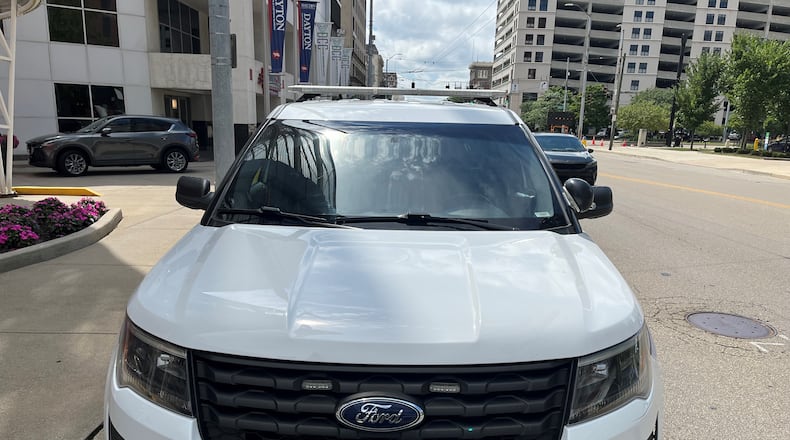Police say they are activating and testing the mobile units this week and hope to go live today.
The police department plans to acquire fixed-site license plate readers to deploy in neighborhoods they say want them, but that won’t happen until neighborhoods develop safety plans and show the cameras would be beneficial, police said.
But automated plate readers are controversial and some community members say the city should not have allowed police to use the devices because they could be misused or could contribute to over-policing, especially in minority neighborhoods.
Some community members continue to insist the police department did not comply with the requirements of a city ordinance that spells out what police need to do to adopt new surveillance technology.
On July 20, the Dayton City Commission voted 3 to 2 to allow the police department to utilize automated license plate readers.
Dayton police vehicles already are equipped with cameras that can scan license plates to see if they match information in a law enforcement database. They just need to be activated.
Plate readers automate what police officers do manually, which is run plates to see if they are tied to crimes or criminals, said Dayton police Chief Kamran Afzal.
Afzal says plate readers should help eliminate police bias because every plate in front of police cruisers will be scanned — not just those that officers decide to run.
Some business owners in Dayton say the plate readers will be another tool that police can use to try to crack down on criminal activities in their neighborhoods that are putting their employees at risk and that are causing property damage.
Police say plate readers are especially helpful to identify and recover stolen cars.
But other community members and advocacy groups said plate readers raise significant privacy concerns. They also have said they worry about how data they generate will be stored, used and possibly shared with other outside agencies.
Some critics have said there is no research or proof that plate readers deter or solve crimes or that they help remove or eliminate bias.
A group called the Coalition on Public Protection said the police department failed to show that the benefits of the plate readers outweighed its cost and trade-offs.
One concern is the lack of safeguards in the use policy around the use of the new technology, said Destiny Brown, a member of the coalition.
“In addition, the request for a non-biased report from the police department related to use and impacts on the community has still not been provided and creates even more cause for concern, not just for the use of the (plate readers) but for future technology that will be purchased and used by the Dayton police,” she said.
About the Author

